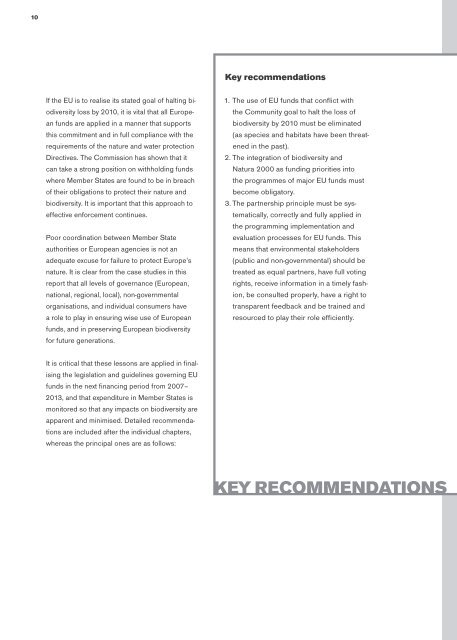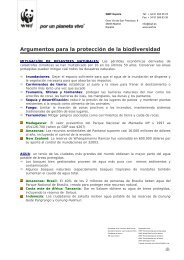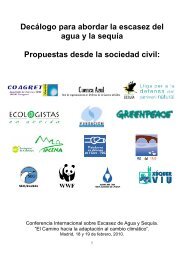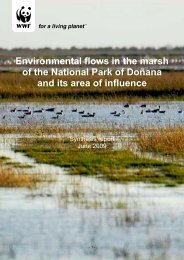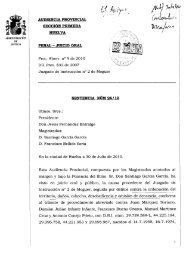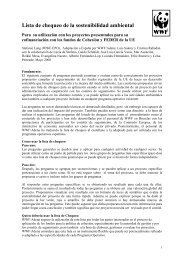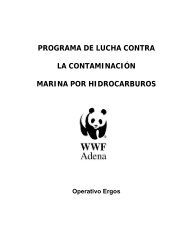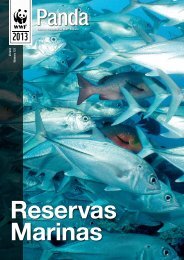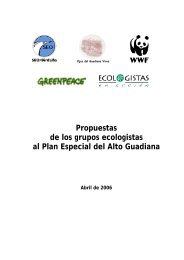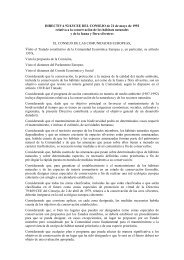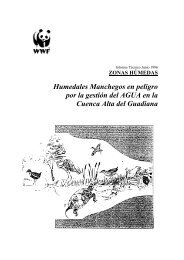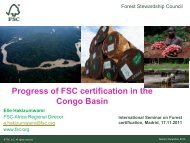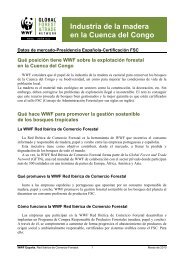Conflicting EU Funds - WWF
Conflicting EU Funds - WWF
Conflicting EU Funds - WWF
Create successful ePaper yourself
Turn your PDF publications into a flip-book with our unique Google optimized e-Paper software.
10<br />
Key recommendations<br />
If the <strong>EU</strong> is to realise its stated goal of halting biodiversity<br />
loss by 2010, it is vital that all European<br />
funds are applied in a manner that supports<br />
this commitment and in full compliance with the<br />
requirements of the nature and water protection<br />
Directives. The Commission has shown that it<br />
can take a strong position on withholding funds<br />
where Member States are found to be in breach<br />
of their obligations to protect their nature and<br />
biodiversity. It is important that this approach to<br />
effective enforcement continues.<br />
Poor coordination between Member State<br />
authorities or European agencies is not an<br />
adequate excuse for failure to protect Europe’s<br />
nature. It is clear from the case studies in this<br />
report that all levels of governance (European,<br />
national, regional, local), non-governmental<br />
organisations, and individual consumers have<br />
a role to play in ensuring wise use of European<br />
funds, and in preserving European biodiversity<br />
for future generations.<br />
1. The use of <strong>EU</strong> funds that conflict with<br />
the Community goal to halt the loss of<br />
biodiversity by 2010 must be eliminated<br />
(as species and habitats have been threatened<br />
in the past).<br />
2. The integration of biodiversity and<br />
Natura 2000 as funding priorities into<br />
the programmes of major <strong>EU</strong> funds must<br />
become obligatory.<br />
3. The partnership principle must be systematically,<br />
correctly and fully applied in<br />
the programming implementation and<br />
evaluation processes for <strong>EU</strong> funds. This<br />
means that environmental stakeholders<br />
(public and non-governmental) should be<br />
treated as equal partners, have full voting<br />
rights, receive information in a timely fashion,<br />
be consulted properly, have a right to<br />
transparent feedback and be trained and<br />
resourced to play their role efficiently.<br />
It is critical that these lessons are applied in finalising<br />
the legislation and guidelines governing <strong>EU</strong><br />
funds in the next financing period from 2007–<br />
2013, and that expenditure in Member States is<br />
monitored so that any impacts on biodiversity are<br />
apparent and minimised. Detailed recommendations<br />
are included after the individual chapters,<br />
whereas the principal ones are as follows:<br />
KEY RECOMMENDATIONS


